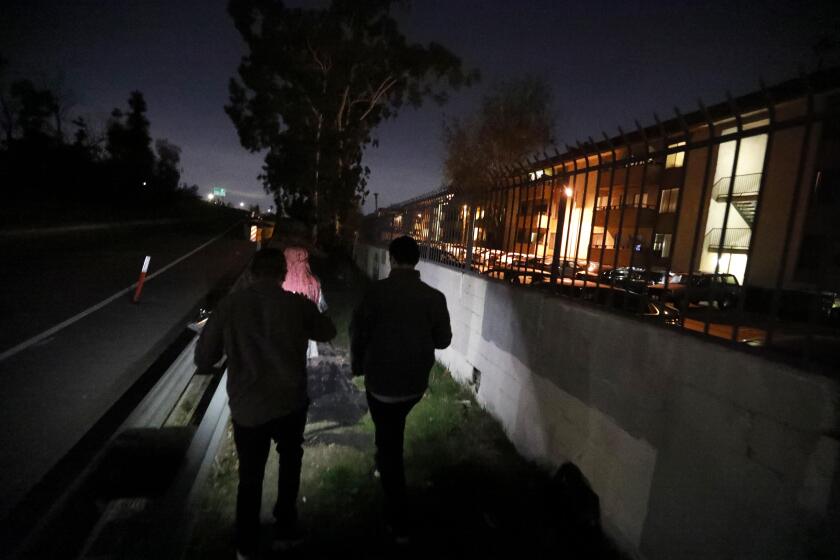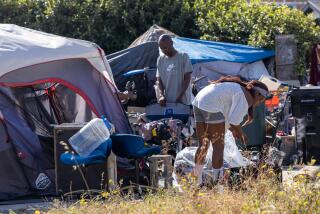Volunteers fan out across O.C. for first homeless count since COVID-19 disruptions
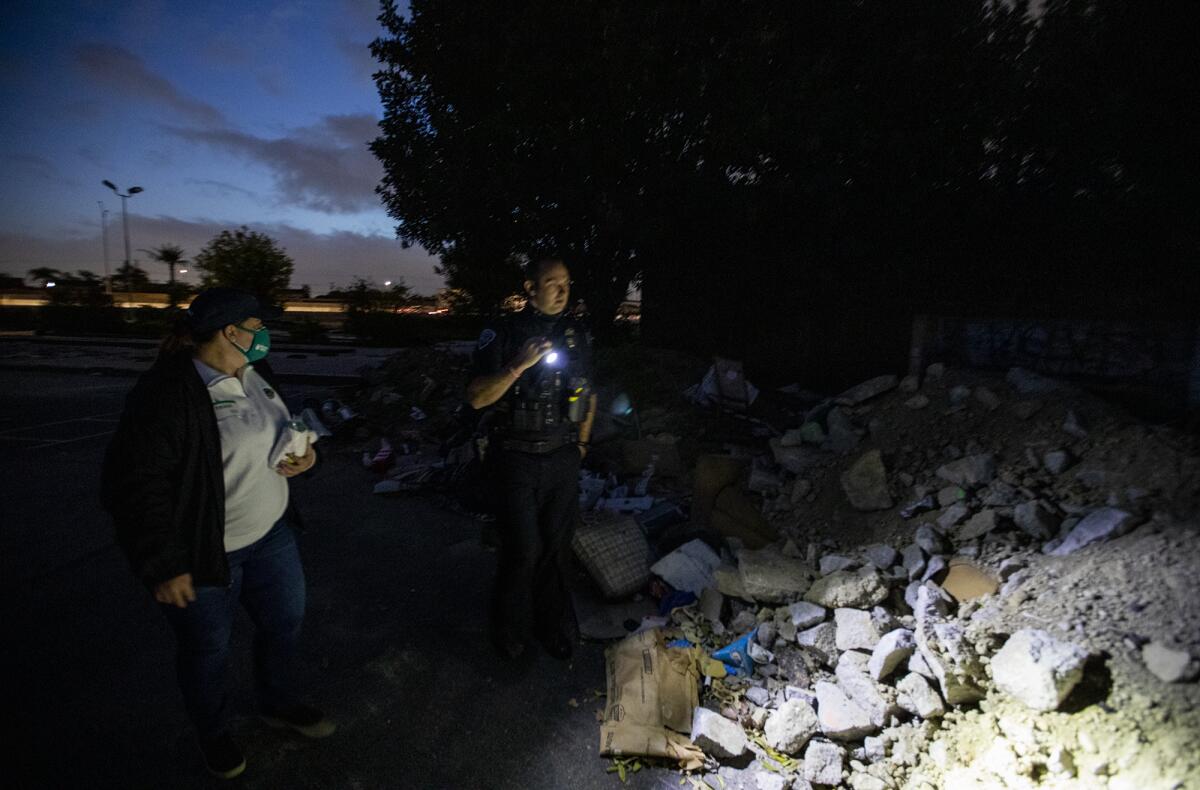
- Share via
In the early morning darkness, Officer Adam Hunter, Amanda Hood and Kathryn Violago formulated a game plan before they headed into a vacant lot littered with debris.
They determined that Hunter, a police officer with the city of Fountain Valley, would first approach a homeless individual and assure them they weren’t in trouble. Then, Hood, a benefit specialist with City Net, a nonprofit providing homeless outreach, would gather information about the person’s housing situation.
A single flashlight helped illuminate a path through what was once a Boomers amusement center in Fountain Valley. The trio walked gingerly toward the lot’s furthest corners. Shattered glass, mounds of rubble and an old tire were among the items scattered throughout.
“Looks like all of our friends have taken off,” Hunter said.
L.A. County homeless count returns after a yearlong hiatus.
Across Orange County, hundreds of volunteers, including county employees, fanned out to count people experiencing homelessness on a single day. The federally required biennial point-in-time count collects demographic data and other information so agencies can update their practices and resources. It also helps determine how much funding Orange County will receive to address homelessness.
The count officially began Monday when a group of volunteers tallied people living inside shelters. Typically, the count is done at the end of January, but a surge in coronavirus cases after the winter holiday delayed this year’s count by a month. The 2020 count was canceled because of the pandemic.
On Tuesday, a crew of workers, including volunteers, police officers and city officials, gathered inside Freedom Hall at Mile Square Park. Each team was dispatched shortly after 5 a.m.
“Ending homelessness, housing the unsheltered and reducing community impacts remains a top priority for my office,” said Supervisor Katrina Foley, who recruited 10 local volunteers, including all of her office staff, to help with the count. Her team started in Tustin. “I want our team to see, firsthand, the reason for the work we do every day.”
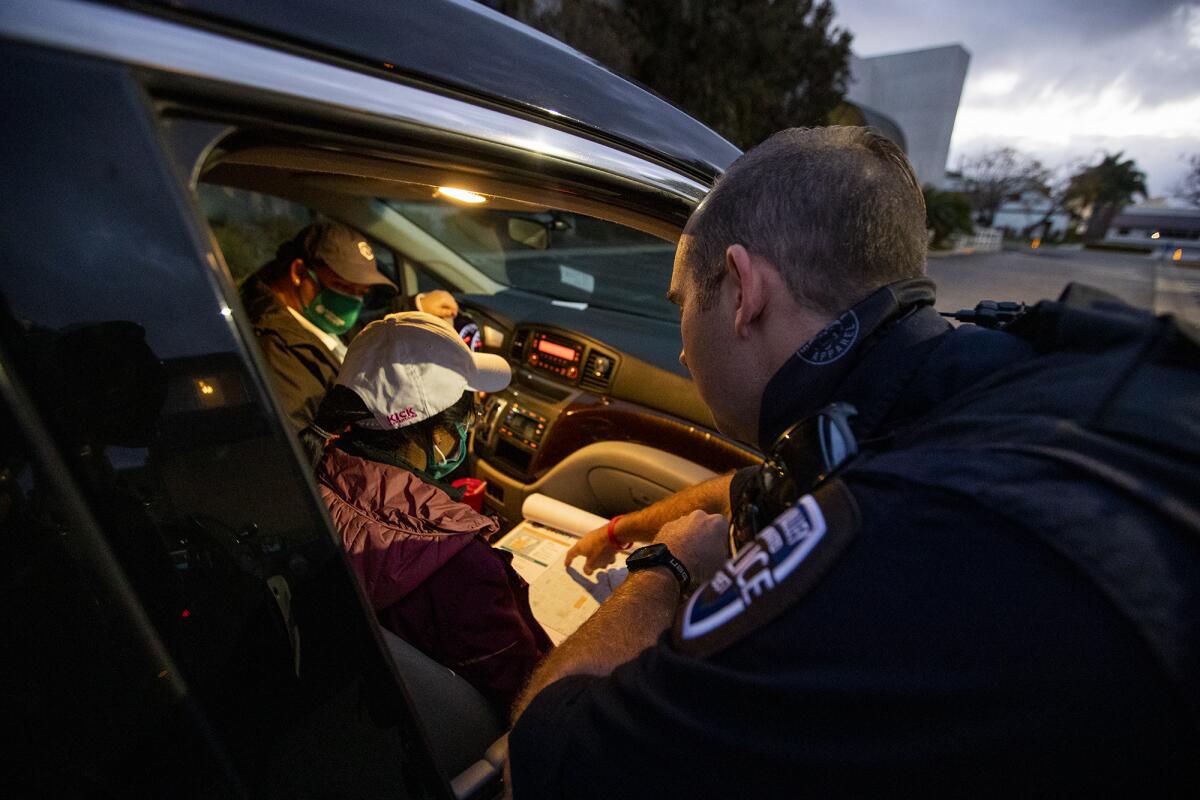
Hunter, Hood and Violago drove to three locations before Hunter pulled into a residential area on Oak Street and Slater Avenue. It was 6:30 a.m., and there was now natural light.
“Did you see her?” Hunter walked up the sidewalk along Slater and stopped at a bush. To the untrained eye, the person was invisible.
Behind a hedge, a woman named Christine Lenz, 73, sat cross-legged making breakfast with jam and a stick of butter. A broom stood upright against the foliage. Three water bottles were placed neatly beside her.
Hood knelt, pulled out her iPhone and began asking questions. Did Lenz have a spouse or partner? Did she have any children under the age of 18? Who else was here with her?
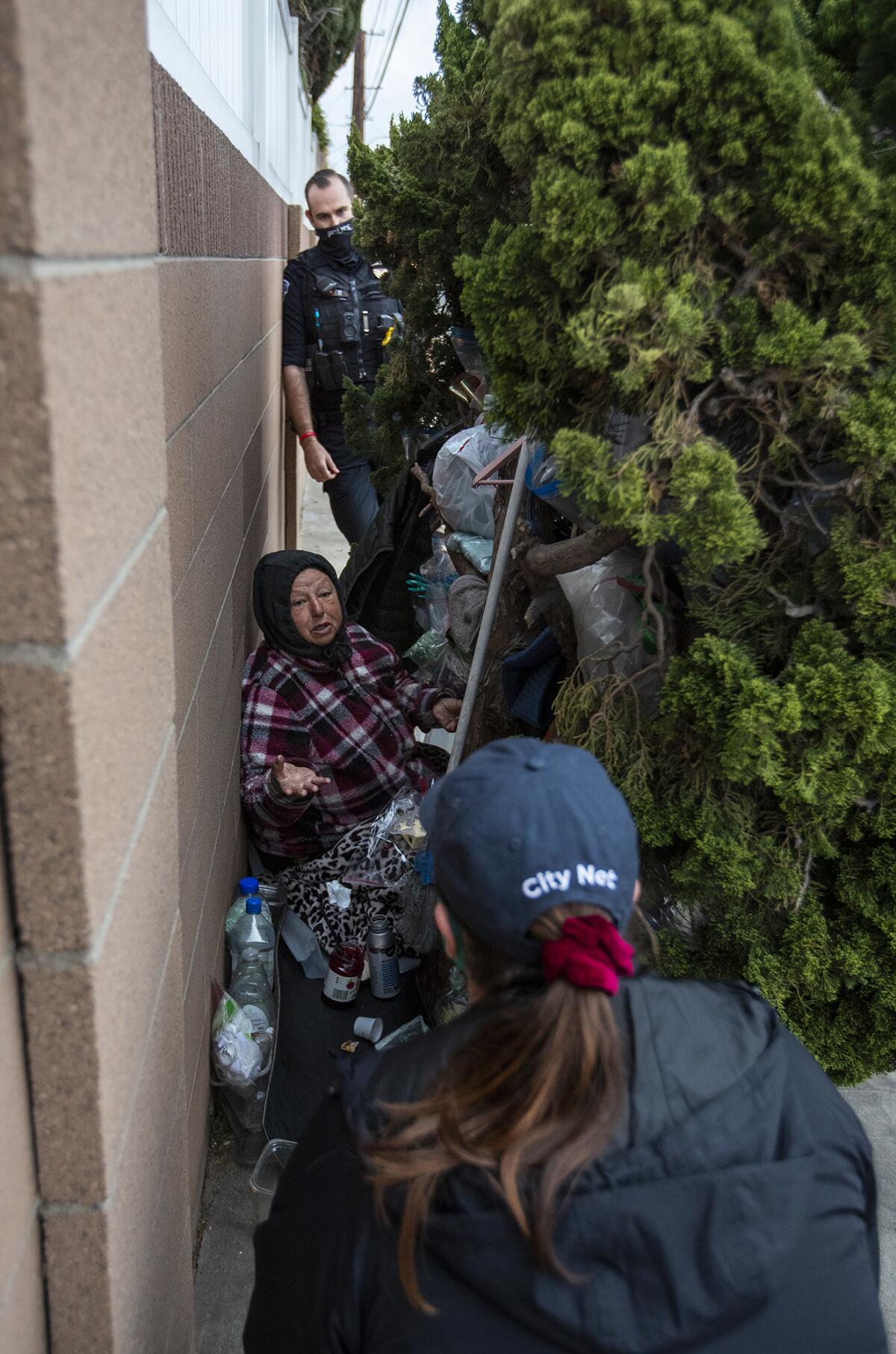
Lenz explained she had stayed in Huntington Beach and Fountain Valley, but she’d been homeless so long, she couldn’t remember her last permanent address. She declined a bag of snacks and option of a McDonald’s or Starbucks gift card.
The trio moved on to their next location, where they met Steven Bloom. The 62-year-old wearing a faded camouflage hat was living behind foliage near Slater and Dixie Street.
He used to live in Newport Beach but said he had spent most of his time in that pocket of Fountain Valley since he became homeless two years ago. Before that, he said, he regularly attended service at the Fount, a Methodist church, and was a student at Orange Coast College in Costa Mesa.
“I’ll be here about another week and then head to Newport and then rehab,” Bloom said. He also planned to register for the Huntington Beach shelter.
Bloom immediately drank the Capri Sun included in his packet of snacks. He thanked Hood and bumped fists.
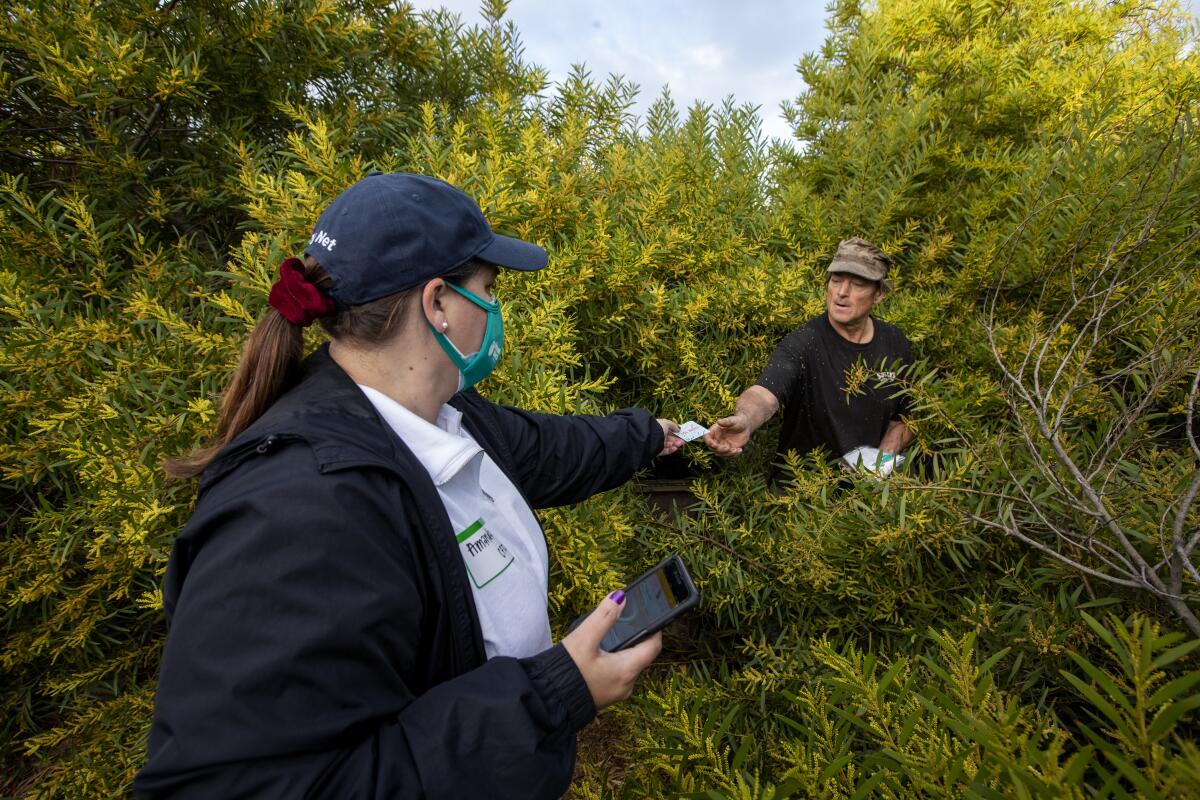
Throughout the morning, Hood’s team weaved throughout Fountain Valley, driving into shopping centers and fast food restaurants and perusing the back of stores where workers prepped stock for the day ahead.
Hunter estimated the city has about 50 to 100 homeless people living in the area. The pandemic didn’t necessarily increase the number of unhoused individuals in Fountain Valley, he said, but he has heard folks voicing reluctance to stay in shelters out of fear of catching COVID-19.
He recognized Lenz from a previous encounter.
“She used to be over on [Magnolia], just north of Talbert,” he said, adding that a crisis assessment team clinician has tried to evaluate her, but Lenz “insists on living right there, behind the bush. She doesn’t want to go to a shelter, she doesn’t want any resources.”
By 9 a.m., the trio returned to the former Boomers property. It was still empty. They had counted only about five homeless people. As part of the count, they needed to return to the same spots one more time to try to catch anyone they might have missed. Violago would be free to go home after the morning shift, but Hood was pulling double duty.
Despite the long day ahead, the work was worth it for Hood.
“My everyday job is a lot of paperwork and sitting at my desk,” she said. “So it’s fun to get out and see people on the street and see where they’re at. I like working with the officers. It’s fun to see co-workers and it’s just the camaraderie.”
More to Read
Sign up for Essential California
The most important California stories and recommendations in your inbox every morning.
You may occasionally receive promotional content from the Los Angeles Times.
